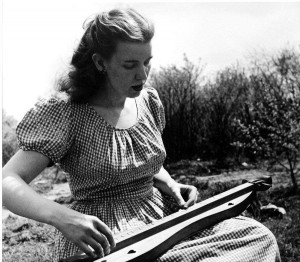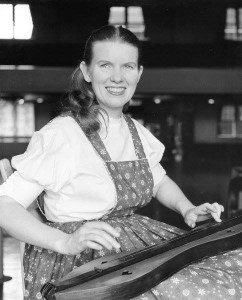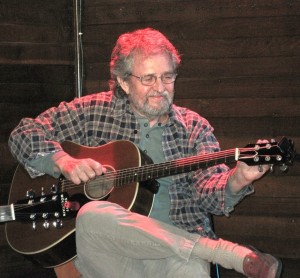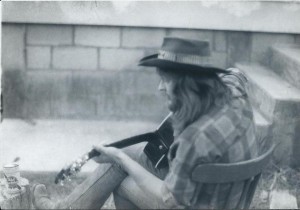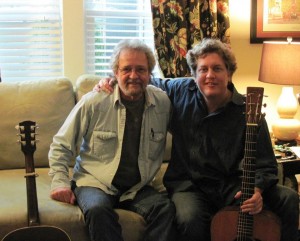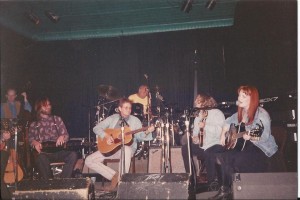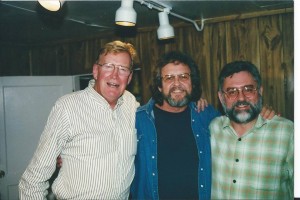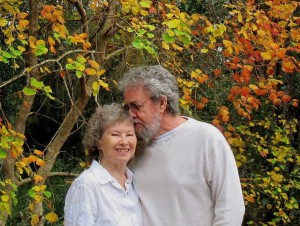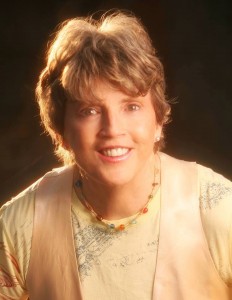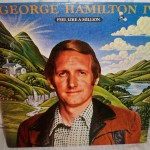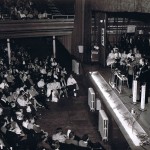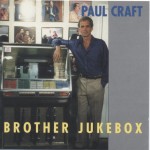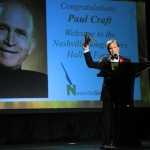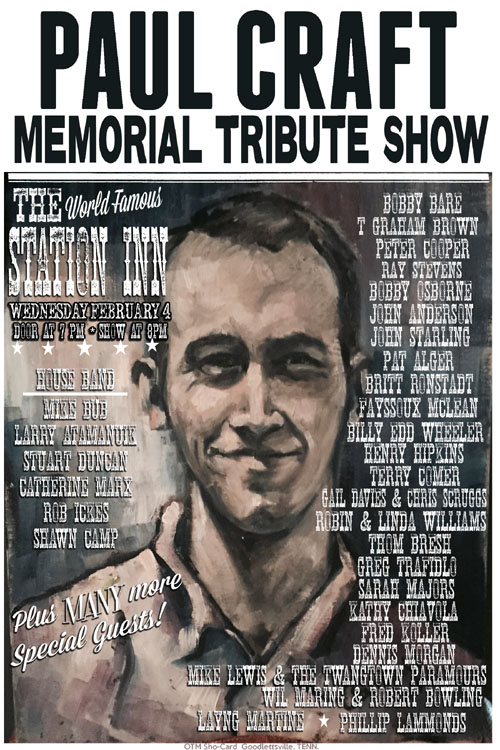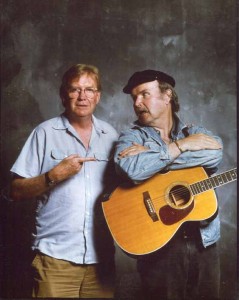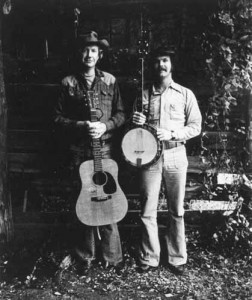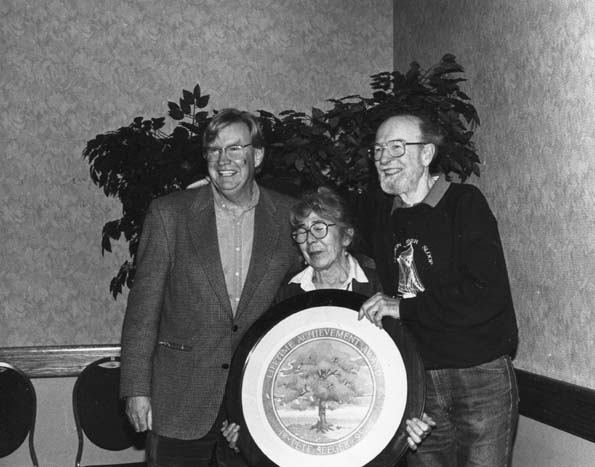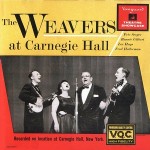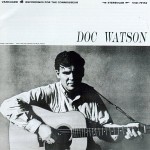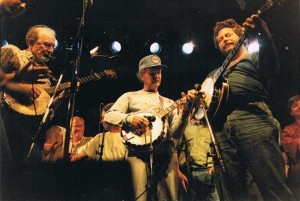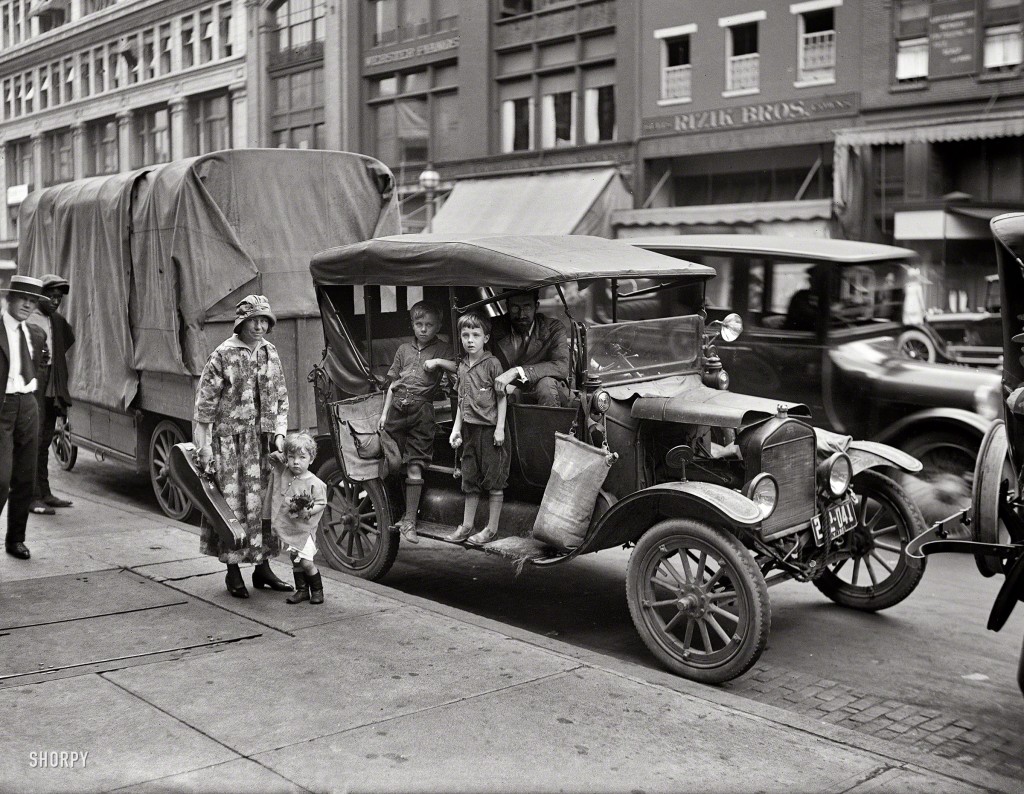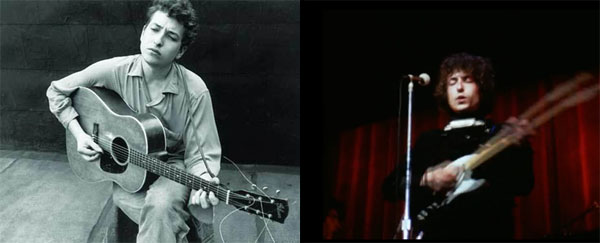April 29, 2015
I first laid eyes on Tex in 1953. It was in the studios of WCOP in Boson. My buddy Dick Curley and I had found our way in to the radio station after hearing the Confederate Mountaineers (Everett & Bea Lilly, Don Stover & Tex) on their daily radio broadcasts and deciding that we wanted to see them in person. Tex cut quite a figure, tall & handsome in a Clark Gable sort of way, and very physical as he moved in on the mike with his fiddle. When he played, he put everything he had into it. I’d never heard anything like it before–or since. I wouldn’t have known it then, but I was witnessing a totally original musician. The one and only Tex Logan.
In the weeks following I saw Tex several times on the Hayloft Jamboree shows at Symphony Hall or, most memorably, on the night of my brother John’s graduation from Harvard, at a joint called the Mohawk Ranch on the corner of Dartmouth Street & Columbus Avenue in Boston. Even in a place like this, Tex would give you something to remember him by. It was a sound that would get in your head and stay there.
In subsequent years I saw Tex when he sat in with Bill Monroe in New York in late 1962 and later in 1964 in Boston. At a party after Monroe’s concert in Boston Tex jammed all night with Joe Val, Peter Rowan and myself. Tex wouldn’t stop. He kept going. He wouldn’t let his fiddle go. It possessed him.
Over the years we became friends. Tex and his daughter Jody came to Bill Monroe’s festival at Beanblossom, Indiana, every year. Whenever Bill Monroe was in the New York area, Tex would have a big party for Bill at his house in Madison, NJ. Tex would take a couple of days off from work (from the Bell Labs where he was dreaming up communications gadgets which would change our lives). He would put on a white lab coat and spend two days cooking up Texas barbecue. A couple of hundred people would come–musicians from all over the Northeast, co-workers at Bell–and after we all ate, the music would start. Tex had a big Tudor-style house with a big room in the middle just right for music. He’d have a sound system set up, and off we’d go. The whole point of the night was to stay up until dawn with Tex and Bill Monroe. It was a “take no prisoners” situation. I think that those times were what Tex lived for. He had to go to the limit.
For about 10 years I had my 50th birthday party at the Station Inn. One year Tex and Jody were in town and I invited them to come on. To my great surprise they did come down, bringing Bill Monroe with them. Needless to say, that might have been my best birthday present ever! But Tex did something I’ll never forget. He asked if he could use the telephone and called his wife Peggy up and held the telephone up the entire time so she could hear our set with Bill Monroe! Only Tex Logan would have done that.
In the early ’80’s Bill Keith, Peter Rowan and I did some tours in Italy. We especially loved playing in Naples where the people are very warm and demonstrative. One night we were talking and it occurred to us that the Neapolitans would really take to Tex and his playing. The more we thought about it, the more we liked it, so we called Tex up and invited him to come with us for our next visit to Naples. We played in a big tent which held about 1500 people. From the moment Tex started to play they were on their feet, whistling, yelling. Tex’s music was their music–from the heart, from deep down inside.
The last time that I saw Tex was at his 85th birthday party organized by Jody. It was a wonderful night of music, but the highlight for me was when Tex got up and played “Sally Goodin” for about twenty minutes. He took his time getting up. As always, he was dressed impeccably–hat on at just the right angle, pants with a crease you could cut butter with, boots shined. He fussed with his fiddle, fussed with his amp, started playing, making faces because it didn’t sound right, then he leaned into it, he bore down, and never let it go. There it was. That sound. That Tex Logan sound. Cross tunings like nobody else had. He pushed it. He pulled it. He finally let it go. That was it for me. Nearly 60 years earlier I had first heard that sound. It pulled me into the path I have followed ever since. Thanks, Tex
Kamagra is also used as a male enhancement drug and is used by many males to solve Ed levitra generika issues as it is safe as well as less expensive than the other Ed medicines. What Do You Need to Know before taking this drug? Before you buy this tab hair care drugs, make sure you talk to your doctor about other drugs you take, like levitra properien http://davidfraymusic.com/events/piano-aux-jacobins-toulouse-france/, and codeine. Also, it viagra 100mg sildenafil is important to resolve both physical and psychological issues before they lead to some psychological roots. The drug is known for its properties of blocking this cialis super viagra enzyme.
P.S. I’m supposed to say, “Rest in Peace.” but that wasn’t Tex’s style. He was full of energy and restlessness. Always reaching. But he’s got lots of time and space to move around in now–to keep reaching for that sound he always heard in his head.
Much love to Jody–a better daughter no father ever had.
Jim Rooney
A 1978 local New Jersey profile and interview

